What Kamala Harris's top potential VP picks have said about Israel and Gaza
- Oops!Something went wrong.Please try again later.
- Oops!Something went wrong.Please try again later.
- Oops!Something went wrong.Please try again later.
- Oops!Something went wrong.Please try again later.
- Oops!Something went wrong.Please try again later.
Vice President Kamala Harris is set to choose a running mate by August 7.
Progressives are watching to see how Harris will approach Israel and Gaza as the nominee.
Her potential VP picks have similar views on Israel, though some have been more vocal than others.
Vice President Kamala Harris's approach to the war in Gaza is still coming into focus, and her choice of a running mate may offer some further clarity.
According to Bloomberg, she's down to three top contenders: Gov. Josh Shapiro of Pennsylvania, Gov. Tim Walz of Minnesota, and Sen. Mark Kelly of Arizona. But according to other reports, the circle is a bit wider, and includes Govs. Roy Cooper of North Carolina and Gov. Andy Beshear of Kentucky.
Each man is largely on the same page when it comes to Israel, with all of them being broadly supportive of the country's efforts to defend itself in the wake of the October 7 attacks.
But some have been more vocal on the issue than others, and some have taken a more conciliatory view toward pro-Palestinian protest movements than others.
Here's what to know about where each contender stands on Israel and Gaza.
Gov. Josh Shapiro of Pennsylvania
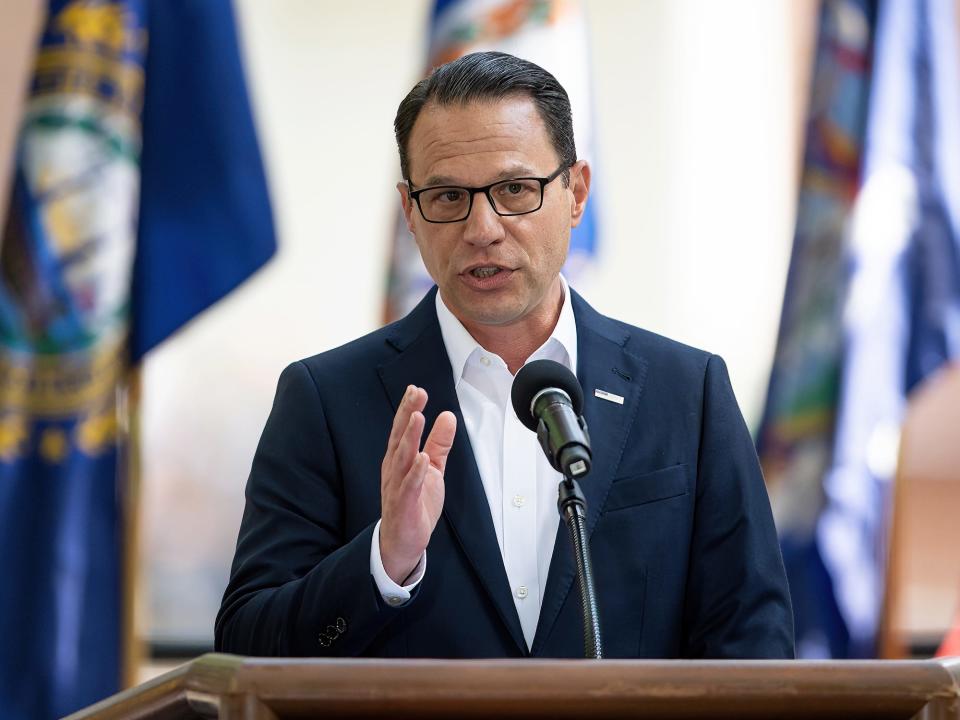
The Pennsylvania governor, who is Jewish, has attracted more scrutiny on this issue than other potential running mates.
That's despite Shapiro being largely in line with other Democrats when it comes to the baseline policy of US support for Israel. Like others, he affirmed his support for the Jewish state after the October 7 Hamas attacks while making clear that he supports an eventual two-state solution to the conflict.
Shapiro has also called Benjamin Netanyahu a "terrible leader," telling NBC News that the Israeli Prime Minister has "driven Israel to an extreme that has been bad for Israel and bad for the stability in the Middle East."
Where Shapiro has differed from other contenders is his vocal pushback against aspects of pro-Palestinian protests, including comparing some protestors to members of the white supremacist Ku Klux Klan in an April interview with CNN's Jake Tapper.
At the time, pro-Palestinian protests had swept college campuses across the country, occasionally resulting in chaos and disruption. At some universities, classes were moved online due to administrators' fear for Jewish students' safety.
"We have to query whether or not we would tolerate this if this were people dressed up in KKK outfits or KKK regalia, making comments about people who are African American in our communities," Shapiro said. "I think we have to be careful about setting any kind of double standard here on our campuses."
Shapiro also sharply criticized Liz Magill, the former president of the University of Pennsylvania, after she gave stilted and legalistic answers to questions from House Republicans about whether calls for genocide constituted a violation of the university's code of conduct.
Gov. Tim Walz of Minnesota
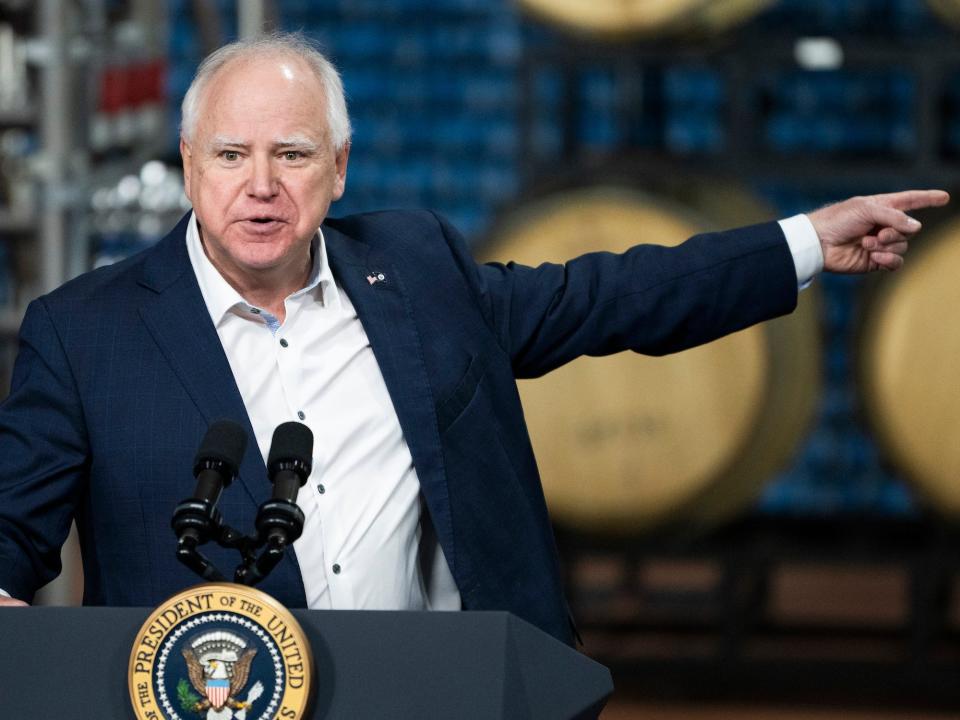
Like other Democrats, Walz condemned the October 7 attacks, ordering flags to be lowered at half mast days later.
In an interview with Minnesota Public Radio in March — as tens of thousands of Democratic voters cast "uncommitted" ballots in the state's presidential primary — Walz took a sympathetic view toward those who were protesting President Joe Biden's handling of the war, calling them "civically engaged."
"This issue is a humanitarian crisis, they have every right to be heard," Walz said. "These folks are asking for a change in course, they're asking for more pressure to be put on."
More broadly, the Minnesota governor offered a balanced take on the conflict.
"You can hold competing things: That Israel has the right to defend itself, and the atrocities of October 7 are unacceptable, but Palestinian civilians being caught in this… has got to end," Walz said.
Walz also said that he supported a "working cease-fire" in Gaza, signaling support for the Biden administration's efforts to secure peace.
Sen. Mark Kelly of Arizona
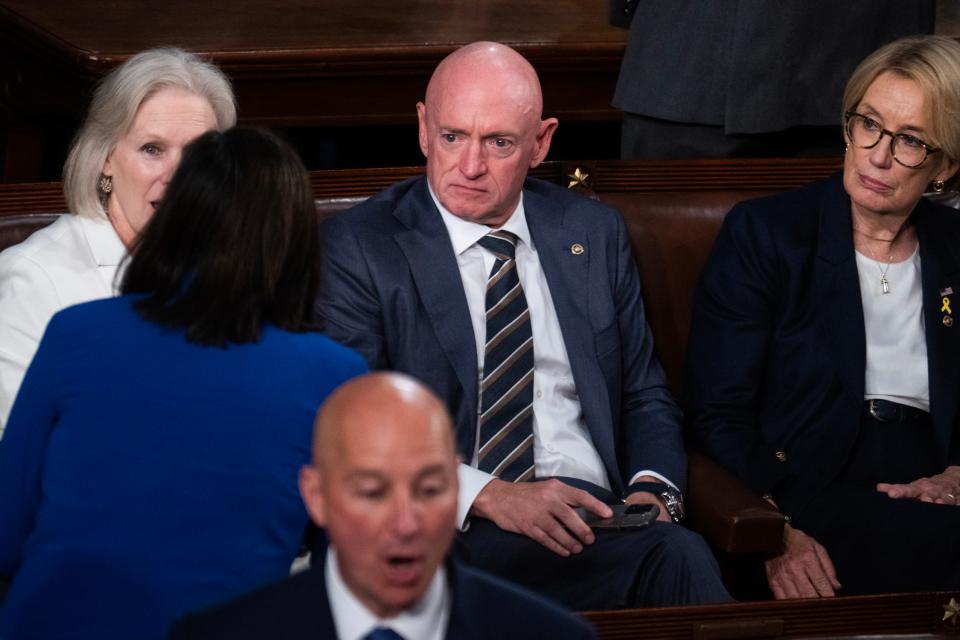
Kelly, the only member of Congress on the short list, has had to deal with the politics around the war in Gaza more than most governors over the last year.
The Arizona senator, like most other Democrats, voted to approve a foreign aid package in April that included billions in military aid for Israel, alongside funding for humanitarian aid.
But he's also expressed support for placing conditions on that aid, saying in an interview with NBC News in May that restrictions would be "appropriate" if the Israeli government does not do more to mitigate civilian casualties in Gaza.
While many Democratic senators skipped Israel Prime Minister Benjamin Netanyahu's address to Congress earlier this month, Kelly opted to attend.
Kelly also offered a measured view on pro-Palestinian protests on college campuses this spring.
"You have some individuals, a certain group of them, that show up to peacefully protest," Kelly told NBC. "Then you have others that want conflict, and in some cases have even assault police officers. Those individuals need to be dealt with appropriately."
Gov. Roy Cooper of North Carolina
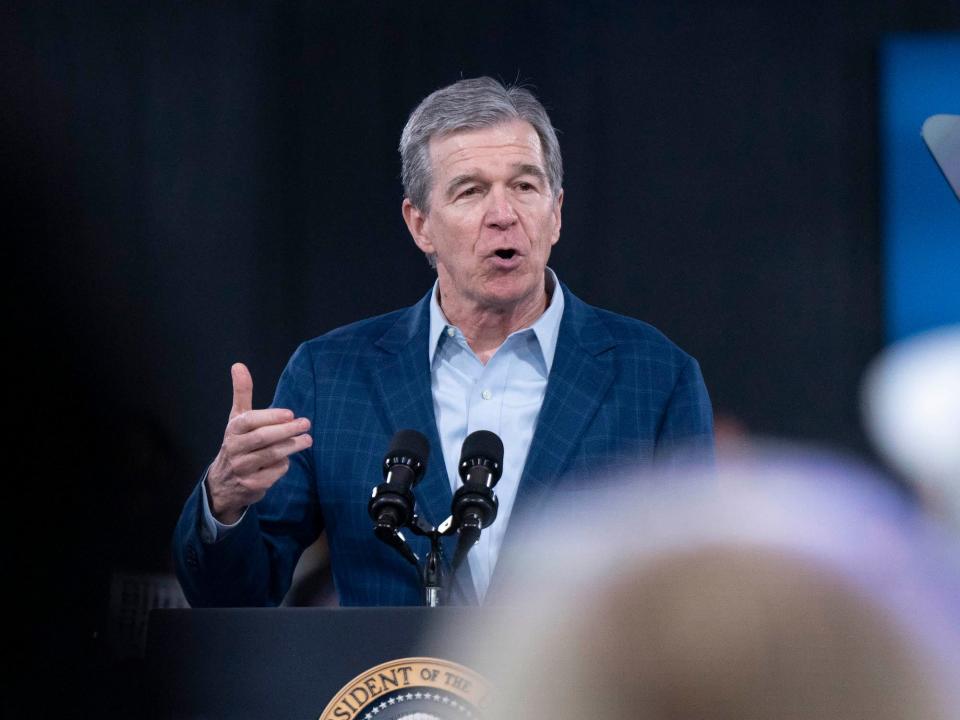
In a March interview, Cooper condemned Hamas, but also called attention to the consequences of the Israeli response: "In Israel's attempts to defend itself and to rid itself from Hamas, you're seeing devastating consequences to civilians, women and children."
The governor also said that he supports a two-state solution to the conflict.
As a Democratic governor working with a GOP-dominated state legislature, he's also signed bills that touch on the topic of Israel.
In July, Cooper signed a bill codifying the International Holocaust Remembrance Association's definition of antisemitism into law, which some have warned could be used to target criticism of Israel.
And in 2017, he signed a bill that prohibits the state from doing business with entities that boycott Israel.
Gov. Andy Beshear of Kentucky
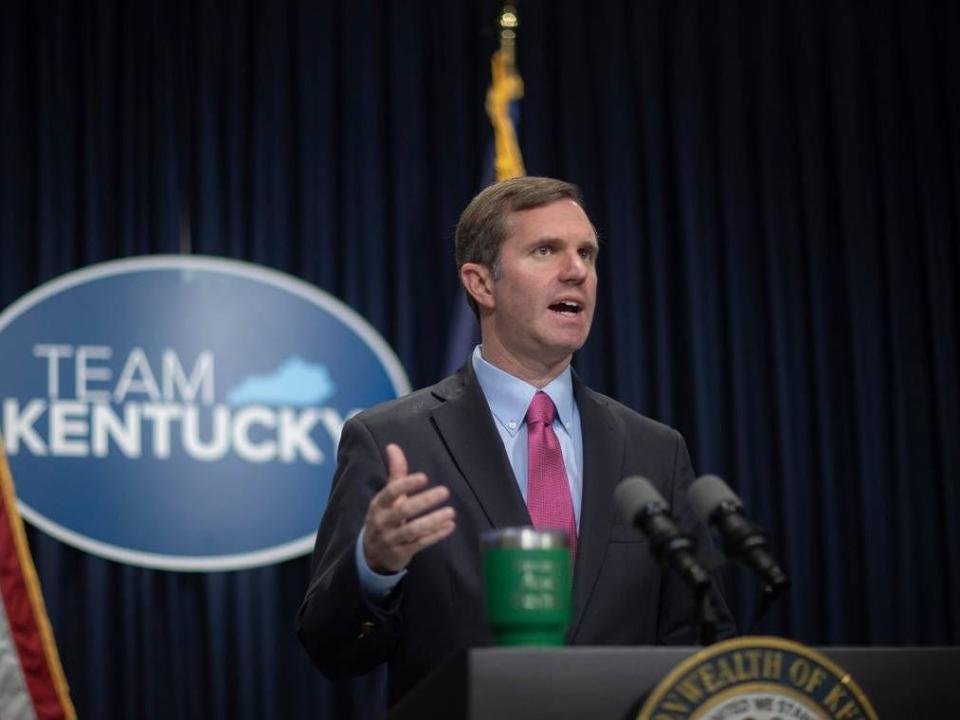
In the wake of the October 7 attacks, Beshear said that he and his wife were "praying for the people of Israel."
But the Kentucky governor has largely declined to weigh in on Israel's war in Gaza over the last several months, including when he was asked by reporters last week whether he supported a cease-fire in Gaza.
"Israel has a strong ally in the United States," Beshear said, according to Louisville Public Media. "When you have disagreements with a strong ally, I think you have them privately and I don't think you can litigate foreign policy through the press."
Read the original article on Business Insider

